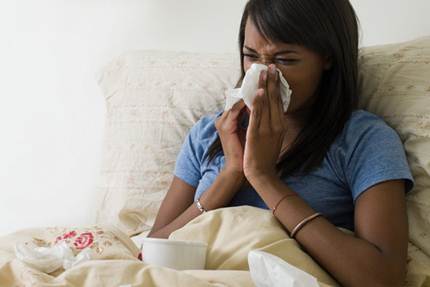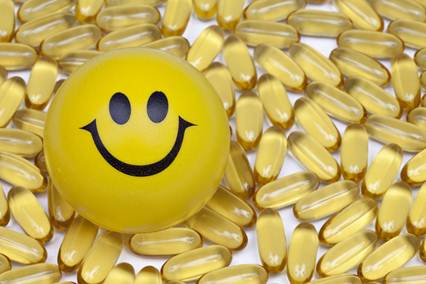The evidence is bleak: more women are unhappy than ever
before. There’s still a lot we don’t understand about depression, but we do
know that when the treatment fits the patient, it can lighten – and even save –
lives.

“It’s the psychological equivalent of the common cold,” says
Joburg psychologist Amber Mahony, though she certainly doesn’t mean it lightly.
The World Health Organization (WHO) estimates that in
developing countries, like South Africa, as many as one in five people with
access to healthcare suffer from depression. It seems this figure is on the
rise.
Linked to everything from the pressures and pace of modern
life to – more recently – the flailing global economy (“recession depression”),
the condition is heavy with stigma and sticky controversy. What we do know,
however is that women are twice as susceptible as men.
One recent study, from the University of Pennsulvania’s
Wharton School shows that something’s been eating at our sense of satisfaction
since the 1970. The worst part? While theories abound, researchers can’t say
sure why this is the case.
Women are generally more ready to admit they're not
coping," offers Zane Wilson, founder of the South African Depression and
Anxiety Group (SADAG).
"This adds to the perception that depression is a
‘women's illness’. But it's more than that. Female hormones can significantly
affect mood patterns. Women also juggle many, sometimes clashing, roles —
caregiver, professional, homemaker — leaving them little or no time for
themselves or their own health."
“Depression is a complex interaction of psychological,
environmental and biological factors,” explains Cape Town clinical psychologist
Denise Grobbelaar. “Medication is often vital initially, but using medication
alone is akin to putting a plaster on a festering wound without treating the
underlying cause.”
We asked the experts to outline the major themes and devise
a plan of action.
Happy pills

Antidepressants have long been the cause of controversy,
which has done nothing to dent their ever increasing popularity. For the most,
debate has focused on their side effects and the risk of over-prescription.
Then, in 2010, the Journal of the American Health
Association published an article (“Antidepressants drug effects and depression
severity”) that shifted the discussion. The paper, which whipped up something
of media frenzy, suggested that most people taking antidepressants would fare
no better on sugar pills.
To be clear (and many spin-off reports were not), the
authors concluded that drugs do seem to be effective in cases of severe
depression. But most of the people who take antidepressants don’t qualify as
severely depressed, which could mean millions of people are tolerating
loathsome side effects, at considerable expense, for no good reason. Only, it’s
not quite so straightforward...
Wilson notes that the placebo effect is a factor in all
clinical research. As such, it isn't reason enough to write off the drugs.
It's certainly no reason to bin the contents of your
medicine cabinet. "For illnesses like bipolar and schizophrenia,
medication is essential," says Wilson. "While not everyone reacts the
same, people do get better on treatment. When people feel they're being
listened to and taken seriously, their symptoms often improve."
Simply put, there's no reliable way of untangling the
effectiveness of the drugs from the relief that comes when a professional takes
your pain seriously. It's an issue that scientists are likely to grapple with
for decades to come.
"I've been on and off antidepressants since I was
16," says Kim*, 29, a law student from Durban. "When I first read
about the 'Prozac myth' — that I could just as well have been taking jelly
beans all this time — I got really angry. Am I supposed to believe that
I've imagined the improvement in my symptoms? This, even when no other
treatment — everything from extensive psychotherapy to hypnosis – has had such
clear results?
"I find it impossible to believe that this is
all in my head. And if it is, I don't care... Bring on the jelly beans, if
that's how well they work!"
Geneye Starling, 35, a health-store owner from
Pietermaritzburg, took her first course of antidepressants when she was 17.
She's been off and on them ever since.
"The last time I took them was in March last year, for
about six months. The side effects were gruesome. For the first week, I felt
paranoid and my body trembled constantly; I was nauseous and couldn't eat. At
about 10 to 14 days, I started feeling fantastic. This lasted for about three
months until I felt like I needed to up my dose and I started gaining weight
rapidly.
"I'm still unsure if I'd go on them again. If I was
desperate enough, I probably would... In my experience, GPs are very quick to
medicate and not very open to, or knowledgeable about, the alternatives."
"Antidepressants are, in my opinion, only helpful for
severe depression and then only in conjunction with psycho-therapy and
lifestyle treatment. Where appropriate, more natural and conservative options
should be considered first."
Of course, few react quite as strongly as Gen eye. For some,
the side effects barely register. Most subside within six weeks and the dose
can be built up gradually to allow the body to adjust. If the symptoms do
persist, decreasing the dose or switching to a different medication might do
the trick. For someone in the depths of despair, this might seem like an
exhausting prospect without guarantees. But the right formula can be
life-changing, says Wilson. "Often, someone who's very depressed doesn't
have the energy or concentration necessary for psycho-therapy. They need to
stabilize their symptoms before they can then focus on other treatment."